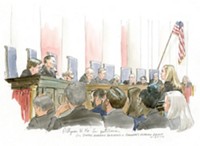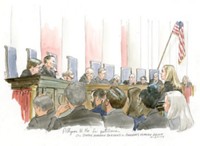Advertisement
Grab your lab coat. Let's get started
Welcome!
Welcome!
Create an account below to get 6 C&EN articles per month, receive newsletters and more - all free.
It seems this is your first time logging in online. Please enter the following information to continue.
As an ACS member you automatically get access to this site. All we need is few more details to create your reading experience.
Not you? Sign in with a different account.
Not you? Sign in with a different account.
ERROR 1
ERROR 1
ERROR 2
ERROR 2
ERROR 2
ERROR 2
ERROR 2
Password and Confirm password must match.
If you have an ACS member number, please enter it here so we can link this account to your membership. (optional)
ERROR 2
ACS values your privacy. By submitting your information, you are gaining access to C&EN and subscribing to our weekly newsletter. We use the information you provide to make your reading experience better, and we will never sell your data to third party members.
Computational Chemistry
Patent inventors must be human, a US federal court rules
by Jyllian Kemsley
August 14, 2022
| A version of this story appeared in
Volume 100, Issue 28

Under the US Patent Act, inventors must be “a natural person,” a federal court ruled on Aug. 5. The case originated when the US Patent and Trademark Office (USPTO) denied patent applications in which physicist and Imagination Engines CEO Stephen Thaler listed an artificial intelligence system as the sole inventor. Thaler unsuccessfully sought to have the denial overturned through USPTO procedures. He then sued the office in federal court and lost, and he appealed that decision. In the latest ruling, Judge Leonard P. Stark of the US Court of Appeals for the Federal Circuit writes, “The Patent Act expressly provides that inventors are ‘individuals.’ ” Stark adds, “The Supreme Court has held that, when used in statutes, the word ‘individual’ refers to human beings unless there is ‘some indication Congress intended’ a different reading.” Thaler is also suing the US Copyright Office for denying his registration applications that listed AI as the author and himself as the copyright owner.




Join the conversation
Contact the reporter
Submit a Letter to the Editor for publication
Engage with us on Twitter